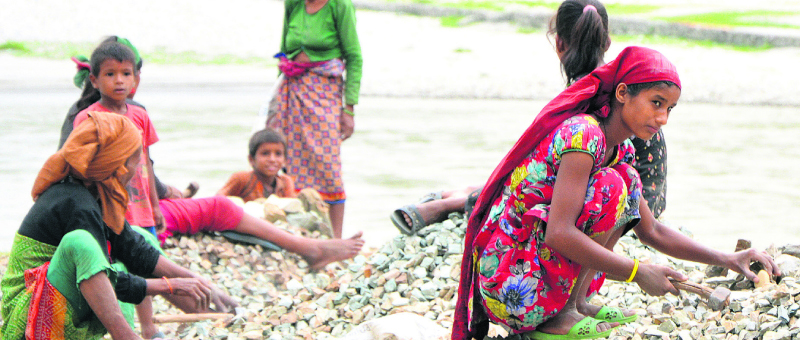KATHMANDU, Nov 26: The United Nations in Nepal officially launched the 16 Days of Activism against Gender-Based Violence (GBV) campaign, calling for the mainstreaming of Gender Equality, Disability and Social Inclusion (GEDSI) in humanitarian action on Monday.
According to a press statement issued by the UN Nepal, Nepal’s frequent exposure to disasters has highlighted the deep-seated gender inequalities that disproportionately affect women and girls. In the aftermath of disasters, overcrowded shelters increase the risks of violence, while essential services remain inaccessible for many, especially individuals with disabilities. Women, who already carry the burden of unpaid care work, are often excluded from decision-making processes during recovery efforts, further silencing their voices in times of crisis.
Gender, Economic Activity & Equality

UN Resident Coordinator Hanaa Singer Hamdy, speaking at the event, said, “Nepal’s unique geography and socio-economic challenges make it particularly vulnerable to recurring disasters. However, the impacts are not gender-neutral. To prevent violence against women in humanitarian crises, we must empower women and girls in humanitarian responses, design inclusive and gender-responsive interventions, and ensure perpetrators are held accountable.”
The launch event featured an interactive dialogue titled “Unite to End Violence Against Women: Gender Equality, Disability, and Social Inclusion in Humanitarian Action.” Leaders from the Government of Nepal, humanitarian clusters, development partners, and women-led organizations discussed the disproportionate impacts of disasters on women and girls. They emphasized the critical role of women-led organizations in overcoming these challenges and promoting inclusive, community-centered solutions, as mentioned in the statement.
“We need to localize the GEDSI Strategy Action Plan to integrate GEDSI principles into disaster risk reduction and management. By localizing this strategy at the provincial and local levels, we can create tangible change, particularly for women, girls, and persons with disabilities,” the statement quotes Anil Pokhrel, Chief Executive of NDRRMA.
The statement reads, “As the campaign continues, the United Nations in Nepal urges all stakeholders to prioritize gender, disability, and social inclusion in all aspects of disaster preparedness and response, ensuring that humanitarian efforts respect and uphold the dignity and rights of every individual, regardless of gender, ability, or status.”





-1771291468.webp)

































